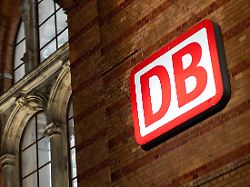“Railway system endangered”
Court of Auditors: Deutsche Bahn is becoming a bottomless pit
3/15/2023 3:02 p.m
Deutsche Bahn is said to be in a permanent crisis and, with daily losses in the millions, is slowly becoming a case for restructuring – this is the assessment of the Federal Audit Office. He has clear demands on the federal government, but Transport Minister Wissing rejects criticism.
In view of the ongoing crisis at Deutsche Bahn, the Federal Court of Auditors has sounded the alarm and is demanding radical government intervention. “The crisis at DB AG is becoming chronic, the group is developing into a restructuring case that endangers the entire railway system,” said Kay Scheller, President of the Audit Office, when presenting a report on the state-owned company. The situation has not improved since the last investigation four years ago, but has continued to deteriorate.
The group now has more than 30 billion euros in debt, and five million have recently been added every day. “DB is becoming a bottomless pit.” Goals such as doubling passenger traffic by 2030 or a 25 percent share of freight traffic by rail are unattainable. The federal government must realign the group and separate from the subsidiaries Schenker and the local transport company Arriva. Furthermore, the federal government must ensure that competition is strengthened and that the rail network is split off from the group. “The previous organization as an integrated group did not prevent the ongoing crisis at DB AG,” says the report. However, the traffic light coalition wants to change little about this. The rail network and train stations will continue to belong to the group, but will be designed for the public good.
DB Netz is currently a stock corporation. The transport companies such as long-distance or regional transport, on the other hand, could be managed privately, and an IPO was not ruled out. Court of Auditors President Scheller called for resolute intervention by the government: “The federal government must get DB AG on the right track – as a transport policy designer, sole owner and financier, it can set the course,” said Scheller. “The important thing is that what doesn’t strengthen rail doesn’t belong in the group.”
Transport Minister Volker Wissing rejected the criticism: There is a radical concept for the rehabilitation of the network, as well as a restructuring of the group, including an infrastructure division geared towards the common good. It is now a matter of working through this point by point. You do that consistently. The secondary routes are currently being refurbished so that the general refurbishment of the most heavily used corridors can start quickly. “What we can’t do is govern backwards,” Wissing said.
